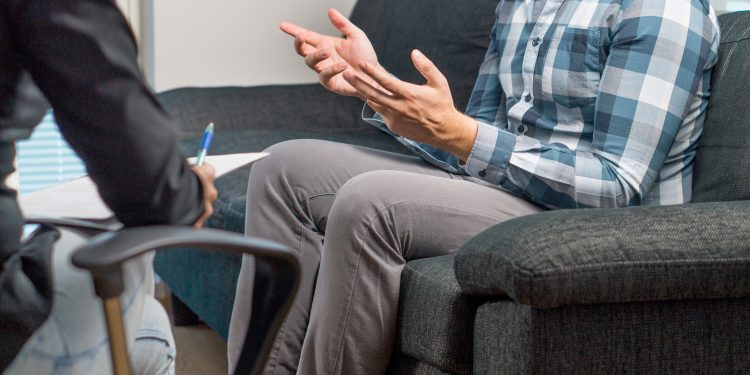by Jacob Meyer, LSW, LAC
The gap between our perception of what brain injury recovery should be like versus the actual process of recovery can be confusing for a person who is just trying to get back to normal life. The common perception of brain injury recovery is that you may experience symptoms such as headaches and need to avoid light temporarily. Actual recovery from a brain injury is different for everyone and treatment varies wildly from person to person. Some people are simply able to bounce back while others find themselves in a several-year recovery period with worries about how they will ever get back to normal. For more serious cases I often find psychotherapy to be beneficial to long -erm recovery efforts. Below are three common reasons why:
1. Increased Emotional Reactivity
One of the most common issues I see patients struggle with early in the course of brain injury recovery is the increased emotional reactivity they find themselves dealing with. Patients are often bewildered, confused, and ashamed that they are struggling to maintain the emotional stability they are used to. Many patients don’t understand that increased emotional reactivity is common in brain injury recovery due to increased symptoms of anxiety and depression. Anxiety and depression commonly contribute to emotional instability and an increased presentation of irritable or emotionally reactive states. Individual psychotherapy helps to identify, contain, and help mend the reactive mind through exploration of negative feeling states. I also include mindfulness meditation breath work to increase the patient’s time in calmer states. Evidence has shown it helps toward positive structural changes in the brain.
2. Invisibility
The difference between how an injury is perceived by ourself and others in our recovery is its degree of visibility. Many of us stop and will try to be helpful to someone who is struggling with a clear physical signal like a cast. We will open the door, ask if they need help, and might even sign the cast as a symbol of well wishes. However, a common issue with brain injury recovery is the lack of visibility. Patients dealing with brain injury recovery are typically able to present as mostly okay and people in their environment will typically expect them to be completely back to normal shortly after their injury. The lack of understanding of brain injury recovery, combined with someone looking normal, can create a conflict of expectations that results in increased stress. Patients benefit from psychotherapy because they and their struggles are visible to the therapist along with being able to learn how to communicate more smoothly with people and their environment about their recovery.
3. Long-Term Recovery
One of the most difficult things for patients in brain injury recovery is getting used to the long-term recovery that is necessary. Fears often emerge during treatment about whether they will ever get back to their full self, be able to work, or sometimes they fear they will be injured again.
Long-term recovery efforts include setbacks along the way. Once a person finally feels some daylight in their recovery they can feel completely back to normal, setting themselves up for a crash in symptom reactivation. This can be extremely frustrating for patients that have been suffering for a long period of time. Psychotherapy is beneficial due to the ups and downs of recovery being normalized by a therapist who is experienced in supporting those who have long-term recovery needs.
Brain injury recovery is a difficult and long road for many. If you feel like any of this resonates with you or a loved one, I encourage you to reach out for a consultation today.
Jacob Meyer, LSW, LAC, works with patients who are experiencing chronic pain, chronic illnesses, TBIs, autoimmune issues, anxiety, depression, trauma, addiction, perfectionism, and relational dysfunction. Jacob is passionate about helping his patients become stronger through the therapeutic process and understands that issues present in ways that are unique to every individual. Jacob works to help people find their way through what they are going through and onto a path that they want to take. www.integratedbraincenters.com











